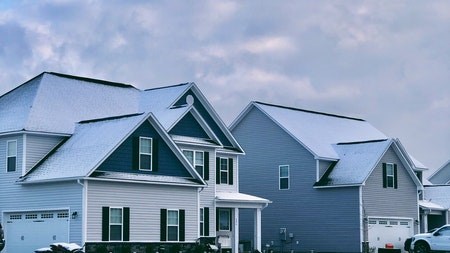With temperatures starting to plummet, Auto & General Insurance is cautioning consumers to take proactive steps against the 5 Gs of winter. These are things unique to the coldest time of the year that could inconvenience, seriously damage or even kill.
“The one thing that too many victims of winter incidents have in common is that ‘it can’t happen to me’, but then, it unfortunately did,” says Ricardo Coetzee, Head of Auto & General, “A reactive approach could cost you dearly, so timeous, thorough and proactive home inspections is key.”
Auto & General Insurance highlights the 5 G’s that often wreak havoc in winter and gives advice on how to address them:
GEYSERS
Auto & General’s claims data illustrates that geyser claims between June and August account for 33% of all annual geyser claims. A burst geyser could cause anything from a minor inconvenience to major property damage, or worse.
- Geysers should be serviced by a qualified plumber every three years. This includes checking components like the anode, element and thermostat, removing lime scale and sludge from the tank and element, checking for leaks and making sure that the geyser is set to an optimal temperature – normally around 600C.
- Invest in a geyser blanket and timer to not only save on electricity, but also to help avoid a burst geyser caused by extreme temperature fluctuations.
- It’s vital to have a drip-tray underneath your geyser because its outlet pipe carries away most water should the geyser burst, limiting property damage.
- Save by switching off your geyser from time to time, especially during peak demand periods, but don’t let it get cold, as this additional contraction-expansion cycle could decrease its lifespan and also consume more electricity to warm the water up again.
- Look out for the early warning signs of geyser failure. If water isn’t as hot as it used to be, water pressure isn’t high enough, too much water or steam is coming from the hot water overflow pipe on your roof, the geyser is making strange humming, hissing or cracking noises or you notice wet spots near it, it must be inspected immediately.
- If your geyser bursts, switch off the electricity mains immediately, turn off the water mains, and call your plumber and insurer.
GRID
Our power grid is under severe pressure, and load shedding is a regular occurrence. That said, one should take extra care when using alternate sources of heat and light. Auto & General has noted that 90% of its annual fire claims are submitted during the winter months.
- Make sure that all heating appliances and devices are SABS approved and, where applicable, installed by a certified service provider. Improperly installed heating devices have been the cause of numerous deaths in South Africa.
- Take gas bottles to your nearest gas retailer to have them checked for leaks on a regular basis. This includes gas bottles used for heaters, braais and stoves.
- Operate devices within manufacturers’ limits. Setting a device to maximum heat for extended periods of time, not placing a device on a level surface, moving it around whilst in operation, for example, could pose a serious risk.
- Switch off any electric devices that could cause a fire risk if power is restored.
- With a gas heater or stove, light the match first, before turning on the gas.
- Have fire extinguishers available, specifically near the kitchen. Make sure that you know how to activate and operate it.
GUTTERS
Gutters and surrounding structures collect a lot of debris during Autumn. These include small branches and leaves that could serve as ideal kindling for a house fire. Make sure that all these structures are clean, as this will not only limit the fire hazard, but also avoid water build-up and damage when the rainy season arrives.
GAPS
Small cracks or gaps in walls, support pillars and window frames could be catastrophes waiting to happen. Moisture tends to collect in these gaps, expand in cold temperatures and cause structural instability or even collapse. Perform frequent checks on your home and all surrounding structures.
GLARE
Winter glare, where drivers are temporarily blinded by the sun, contributes to thousands of accidents worldwide. In winter, the sun is near the horizon during peak morning and afternoon traffic and sun visors offer little or no protection. Wear a good pair of sunglasses and adjust your speed when there’s reduced visibility.
“In the event that disaster does strike, it’s wise to have all emergency numbers within easy reach and all members of your household thoroughly briefed on what to do in an emergency,” Coetzee concludes. “It’s also imperative to have good, comprehensive insurance cover in place to ensure that repairs and replacements can get you back up and running in no time.”
Writer : Auto & General





